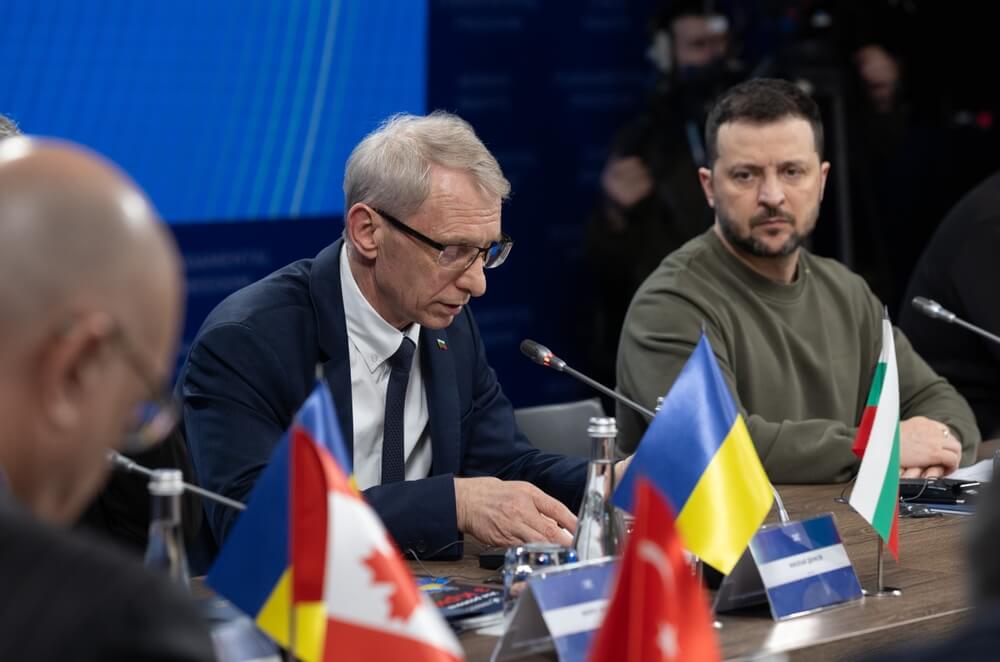After a short period of consolidation, Bulgaria is on its way to a new political crisis, which could return the country to a long institutional vacuum from which it emerged with significant difficulties.
The rotation at the highest level of the government in Sofia, as an arrangement within the ruling coalition, did not go smoothly, and it is uncertain whether the incumbent, Mariya Gabriel, will manage to secure a parliamentary majority for her cabinet in the coming days.
The atypical principle of rotating the prime minister, agreed upon by the coalition partners last July as a way out of the two-year blockade, got stuck at the first attempt.
The previous Prime Minister, Nikolai Denkov, followed the agreement and resigned at the beginning of March after 9 months as the head of the government and left the position to the head of diplomacy, Mariya Gabriel, from the GERB party of the former controversial Prime Minister Boyko Borisov.
She should lead the government for the next 9 months and, after that, leave the post of prime minister to partners from the bloc We Continue the Change and Democratic Bulgaria.
However, the party of former Prime Minister Denkov disagrees with several of the personnel decisions that Ms Gabriel included on the new government's list and has threatened to cancel the agreement, even if it means holding new elections.
All the risks of early elections
If Ms Gabriel, the former EU Commission vice-president, fails to make a deal in the next few days, early elections are unavoidable, even though that would not benefit her GERB party or their partners.
In that case, which is becoming more probable, Bulgaria would return to the institutional limbo in which it held elections 5 times in just 2 years but never established a stable government.
The brief period of stability appears to be ending. However, if there are new elections, they could be held at the beginning of June, simultaneously with the elections for the European Parliament.
This is not a good scenario for the ambitions of the current ruling bloc to stabilise the country and catch up with unfinished European affairs, above all boosting the economy, which is at the bottom of the EU ladder.
It is probable that the country would not have a fully functioning government when it enters the Schengen zone
On March 31, Bulgaria and Romania will join the Schengen area. However, it is probable that the country would not have a fully functioning government when it enters the Schengen zone.
Entry into the Schengen area was one of the 2 priority goals of the current ruling bloc when it put political disputes aside last summer and turned to strengthening its position in the EU.
Another priority of the pro-European government is entry into the Eurozone. Bulgaria might expect it no earlier than 2025. However, recent political turmoil will only push the country further away from that goal.
A chance for pro-Russian options
Given the disagreements in the majority bloc, a new political crisis suits the opposition, dominated by pro-Russian socialists. They see the early elections as a new chance to take over the helm from several pro-European factions that have rotated in Sofia over the past few years.
At the same time, they hope that the current crisis could destroy the recipe for rotation at the highest level of the government, by which the current majority indicated that they could make a successful transition after several failed attempts to stabilise the highest institutions.
In addition, the rotation system was quite popular among citizens. A survey at the beginning of March showed that as many as 40% of citizens support this unusual management system, while only about 25% support early elections.
Given the still widespread pro-Russian sentiment in this EU member state, if there is no consensus on Mariya Gabriel's cabinet, Bulgaria will again face an avalanche of pro-Russian options.
An earlier survey showed that the population of Bulgaria is at the very bottom of Europe in condemning Russian aggression against Ukraine. Only 17% of Bulgarians characterised Russia as an adversary, and as many as two-thirds as Bulgaria's ally and partner.
 The outgoing government of Nikolai Denkov proposed to the parliament the largest package of military aid to Ukraine of €100 million
The outgoing government of Nikolai Denkov proposed to the parliament the largest package of military aid to Ukraine of €100 million
Outgoing Prime Minister Denkov and his potential successor, Mariya Gabriel, as EU and NATO sympathisers, sought to change this deep-seated pro-Russian sentiment.
In its last days, at the beginning of March, the outgoing government of Nikolai Denkov proposed to the parliament the largest package of military aid to Ukraine of €100 million, but it has not yet passed.
If a compromise between the partners were to be reached, it would mean that Bulgaria would remain on the course of alliance with the EU and NATO partners regarding support for Ukraine.
Also, the pro-European orientation of the current partners would mean Bulgaria remaining on the reform course towards catching up with other partners in the EU.
Early elections would probably bring about a similar balance of power in the parliament, and thus a return to the same obstacles regarding the formation of the government, which are currently evident.
However, the elections might also see the growth of Eurosceptic and pro-Russian groups as a result of dissatisfaction with years of futile attempts to build a stable and lasting government.